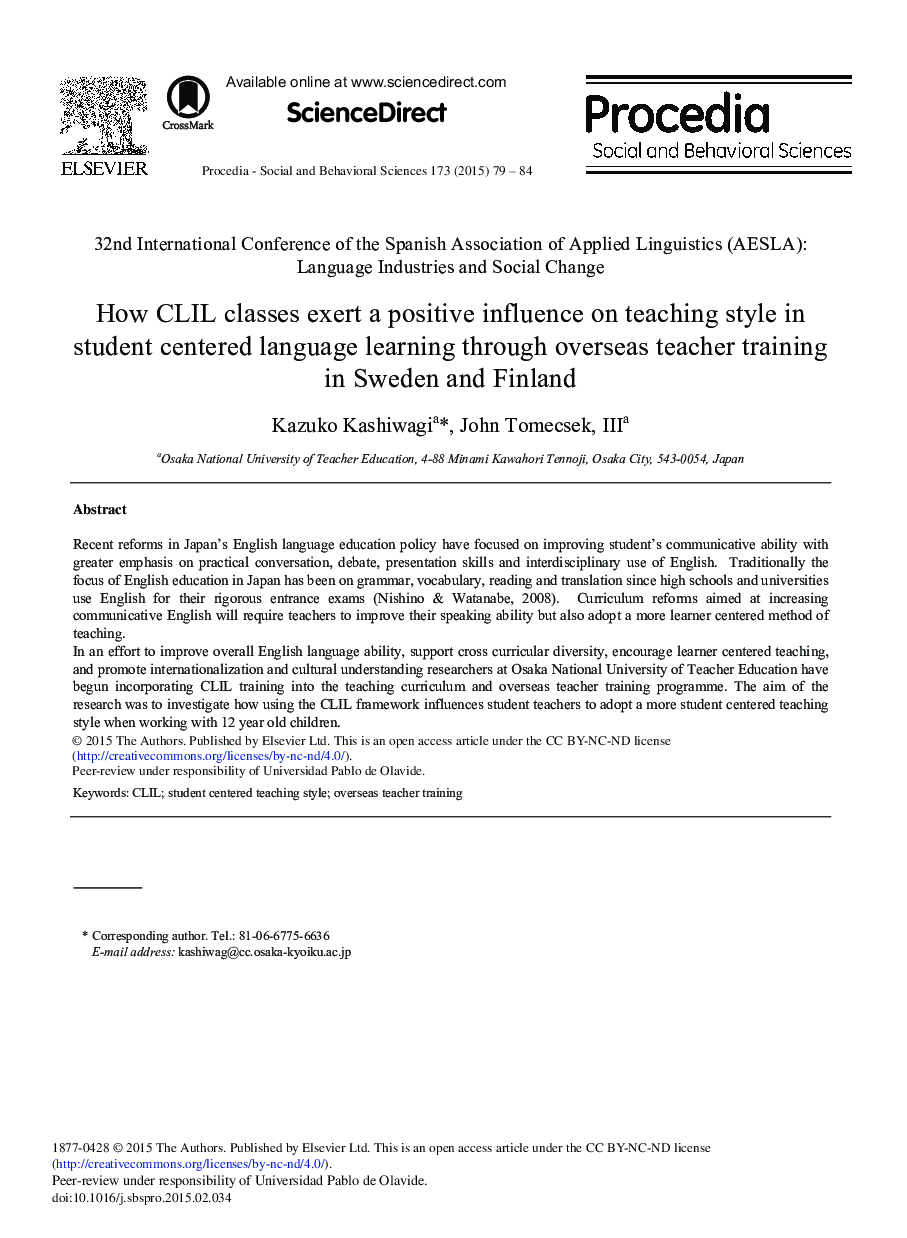| Article ID | Journal | Published Year | Pages | File Type |
|---|---|---|---|---|
| 1111537 | Procedia - Social and Behavioral Sciences | 2015 | 6 Pages |
Recent reforms in Japan's English language education policy have focused on improving student's communicative ability with greater emphasis on practical conversation, debate, presentation skills and interdisciplinary use of English. Traditionally the focus of English education in Japan has been on grammar, vocabulary, reading and translation since high schools and universities use English for their rigorous entrance exams (Nishino & Watanabe, 2008). Curriculum reforms aimed at increasing communicative English will require teachers to improve their speaking ability but also adopt a more learner centered method of teaching.In an effort to improve overall English language ability, support cross curricular diversity, encourage learner centered teaching, and promote internationalization and cultural understanding researchers at Osaka National University of Teacher Education have begun incorporating CLIL training into the teaching curriculum and overseas teacher training programme. The aim of the research was to investigate how using the CLIL framework influences student teachers to adopt a more student centered teaching style when working with 12 year old children.
